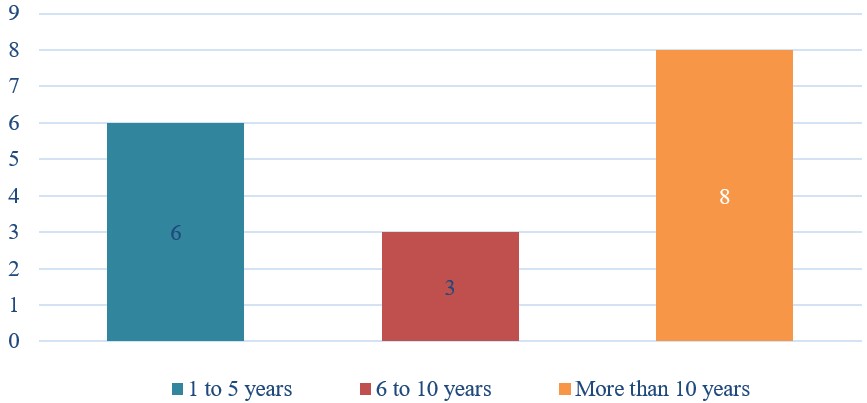The Perceptions of Saudi English Teachers about their Contribution to the Development of English Curriculum in Saudi Arabia
Abstract
The current research investigated the perceptions of Saudi English teachers about their contribution to the development of English curriculum with the Ministry of Education (MOE). Also, this research sought to know the role of Saudi English teachers in developing English curriculum in Saudi Arabia. To obtain teachers’ perceptions, an online questionnaire was designed via google forms with open and close-ended questions along with a Likert scale section. It was shared with the Saudi Faculty of English account on Twitter. The major cause of conducting this research was to raise the awareness of including Saudi English teachers in developing English curriculum, and to make this process as a collaborative effort among various stakeholders and English teachers. The findings indicated the absent role of Saudi teachers and the lack of their involvement in developing English curriculum in Saudi Arabia. Moreover, the results showed their willingness to participate and be part of this process.
Downloads
References
Baş, G., & Şentürk, C. (2019). Teachers’ voice: Teacher participation in curriculum development process. Inquiry in education, 11(1), 1-31 Retrieved from https://digitalcommons.nl.edu/ie/vol11/iss1/5/
Calub, C. L. (2018). Language curriculum development: An overview. Manuscript submitted for publication. Retrieved from https://www.researchgate.net/
Mellati, M., & Khademi, M. (2014). ELT learners’ preferences and teachers’ attitudes: Determinant factors in curriculum design. International Journal of Language Learning and Applied Linguistics World, 5(3), 258-273. Retrieved from https://www.researchgate.net/
Mohanasundaram, K. (2018). Curriculum design and development. Journal of applied and advanced research. 3(1), 4-6. https://doi.org/10.21839/jaar.2018.v3iS1.156
Mullick, H. (2013). Voices imprisoned within classrooms: A critical approach to curriculum development and teacher voice on a preparatory year English language program in the kingdom of Saudi Arabia. International Journal of Bilingual & Multilingual Teachers of English, 1(02), 37-48. https://doi.org/10.12785/ijbmte/010201
Taylor, P. (2001). 10 Keys stages toward effective participatory curriculum development (2nd edition). Gallen, Switzerland: Swiss association for international cooperation. Retrieved from https://www.participatorymethods.org/
Wooden. J. (2014). Thoughts of the day. W Michael scott word press. Retrieved from https://wmichaelscott.wordpress.com/2014/04/17/dont-let-what-you-cannot-do-interfere-with-what-you-can-do-john-wooden-2/


This work is licensed under a Creative Commons Attribution 4.0 International License.
Copyright for this article is retained by the author(s), with first publication rights granted to the journal.
This is an open-access article distributed under the terms and conditions of the Creative Commons Attribution license (http://creativecommons.org/licenses/by/4.0/).























